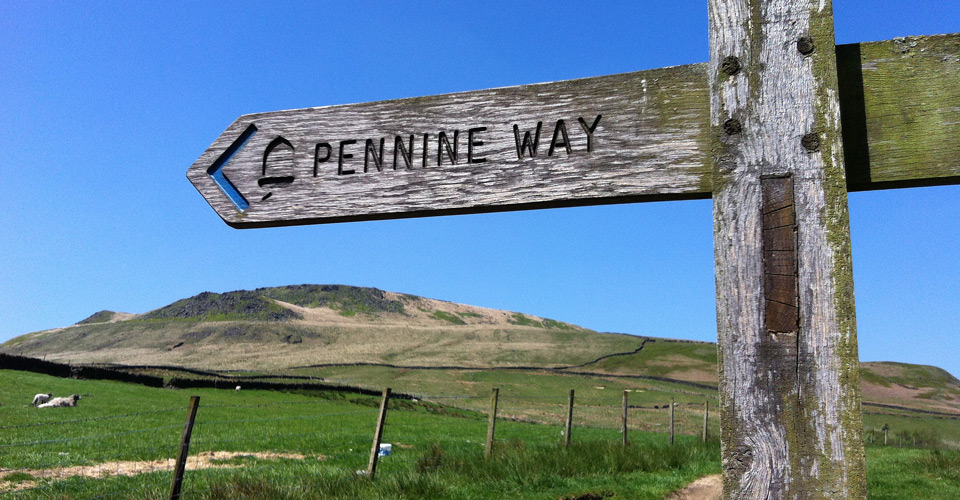Sometimes we learn things the hard way. Among my collection of mistakes, one story from six years ago stands out. As a runner, I’d read a bit about ‘electrolytes’ before. But a warm September day on a footpath near Hadrian’s Wall taught me the rest.
The story begins in 2014, when I’d set myself a meaty challenge. With no support, I was planning to run the whole of the Pennine Way, from Edale (near Sheffield) to Kirk Yetholm in Scotland. It would take around eight days to do the 270 miles, climbing around 14,000m on the way. Deep down, I knew how much it would test me both physically and emotionally.
By staying overnight in farmhouses and B&Bs, I was able to keep my kit to a manageable 12kg. I could also get a good night’s sleep, a healthy meal, and a rare pint to keep up the spirits. I knew that these recovery stops were essential, and all went well for the first few days.
But then day six arrived and was the toughest of the lot. As it went on, I struggled to focus. It was hot and I expected to be tired, but something else was wrong. I was flagging, and at times felt barely conscious. With a final effort over the rough country, I made it to my bed for the night. The B&B owner took one look and helped revive me with a cuppa. It was just in time.
So what had happened?
I’m used to endurance events, so I take good care to take on enough calories and fluids. But this time the water I’d been drinking wasn’t making a difference. During my 24-mile run that day, I’d overlooked a magic ingredient – electrolytes.
What do we mean by ‘electrolytes’?
Electrolytes are minerals found in our blood, urine, and body tissues. They have an electric charge, and do essential jobs for us such as:
- Making sure that our nerves, muscles, and heart work properly
- Moving water and nutrients into our cells, and removing waste
- Balancing our body’s pH level
You’ll have heard of some electrolytes – like potassium, magnesium, phosphate, sodium, chloride and calcium. We get them by eating a varied diet. For example, bananas are famous for being a source of potassium. But we lose electrolytes by sweating (or, if we’re unwell, through vomiting and diarrhoea).
On that long, hot day, my sweating had caused an imbalance. The distance and the heat meant I was losing more electrolytes than I was taking on. This imbalance can get serious very quickly, because our bodies maintain the right level of electrolytes within a very tight range. If levels get too high or too low, we see dehydration, cramp, fatigue, nausea, and heart problems. Left unmanaged, the imbalance can cause a coma or worse. Instead, I had an unpleasant experience and was lucky that safety was nearby.
Most of the time, we can keep this balance right with healthy meals and the odd snack. Just take a look at the list below for a guide. But illness or heavy exercise can use up your electrolytes, as it did for me. You may want to add tablets or a pre-mixed electrolyte drink to your routine. For tough endurance events, I’ve settled on supplements from an American company called Nuun.
After eight days on the Pennine Way I’d finished my challenge, picking up a motley collection of sore muscles and blisters. I was pleased, but I’d also learnt an important lesson. In those conditions, drinking plain water just wasn’t enough. I’d had a lucky escape. Let’s hope this blog means that my clients, friends and colleagues can learn from my mistakes.
Electrolyte drink tablets from Nuun
A quick layman’s guide to electrolytes
Name: Potassium
What it does: Controls the balance of fluids, makes cardiac muscle work properly
Comes from: Bananas, vegetables (broccoli, brussels sprouts, parsnips), beans and pulses, nuts and seeds, fish, beef, chicken, turkey
Name: Magnesium
What it does: Helps convert food into energy, supports bone health
Comes from: Spinach, nuts, wholemeal bread
Name: Phosphate
What it does: Helps build strong bones and teeth, helps convert food into energy
Comes from: Red meat, dairy, fish, poultry, bread, brown rice, oats
Name: Sodium
What it does: Body fluid balance;
Comes from: Salt – commonly found in breakfast cereals, cheese, some bread, savoury snacks. The one electrolyte that is overly abundant and care must be taken in daily diets as the limit is 6g per day for adults.
Name: Chloride
What it does: Helps you digest food
Comes from: Tomatoes, leafy vegetables, olives and rye
Name: Calcium
What it does: Helps build strong bones and teeth, regulates muscle movement and blood clotting
Comes from: Dairy foods, green leafy vegetables (curly kale, okra, spinach), bread, fish where you eat the bones (such as sardines and pilchards)


